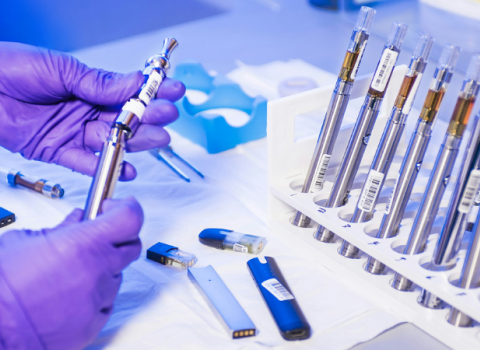
Companies that are involved in lower-risk drug modification or later stage developments are becoming increasingly popular, at the expense of genuine innovation, according to the latest annual biotechnology report by UK patent lawyers Marks & Clerk.
A number of unique challenges currently facing the biotech sector are adversely affecting investment. These stem in particular from growing caution in the granting of marketing approval for new drugs by the FDA. This in turn, is placing added pressure on the patent life of drugs.
These pressures are making biotech less attractive in the eyes of many investors, says the report, which is based on the views of nearly 500 executives across the biotechnology and pharmaceuticals sector in the US and UK, mainland Europe and Asia.
Overall, 78 per cent of respondents think the climate for enabling biotechnology innovation has deteriorated within the last year, while 89 per cent believe lack of funding will lead some small or early-stage companies to fail or be bought out at unattractive values.
Secondary and further funding will become increasingly difficult to secure as market conditions deteriorate and investors go for less risky, later-stage drug development in a bid to limit their exposure to risk. This will lead biotech companies to focus increasingly on drug modifications and more mature drugs in their pipelines, further compromising innovation.
Even where capital is available, the terms for funding may become simply uneconomic. Key investors will be looking for a greater equity stake, or to secure their capital against intellectual property (IP) assets. This reflects a trend gathering momentum within the industry where investors focus much more intently on the value of IP rights.
“Biotechnology represents the future of modern medicine [but] yesterday’s innovators now struggle with dwindling pipelines, generic competition and a chequered R&D record,” said Gareth Williams, Partner at Marks & Clerk and co-author of the report. “Whilst the long-term view has not changed, we are seeing a short to mid-term funding gap in the current climate, which poses a genuine risk to essential, early-stage research and development.”
And the regulators aren’t helping…
The genesis of the funding issue is not only down to current economic fragility. A much more cautious attitude from the FDA, is making it considerably harder for biotechs to get approval for clinical trials of novel products, such as stem cell treatments, or marketing approval for drugs.
For example, the UK stem cell company ReNeuron plc’s application to carry out a US trial of its neural stem cell treatment for stroke was first put on hold by the FDA in January 2007. The company carried out further preclinical trials, and submitted the new data in December 2007. Then in January 2008, it was told those data still were not good enough.
Or consider the case of another UK company, Vernalis plc, which was forced into a massive restructuring after the FDA refused to extend the label on its migraine treatment Frovatriptan in October 2007. Earlier this month, the company completed restructuring that saw it sell off US operations and products, and cut headcount from 210 to 90.
Investors take flight
Events such as this are inevitably having an affect on investor sentiment. In all, 68 percent of respondents believe that the drug approval process must become less risky if investment levels are to be maintained.
One of the most important consequences of slower process for getting approvals is its impact on the lifetime under which a new drug is protected by its patent. As a result said seventy eight percent of respondents, biotech companies will bring more “me too” drugs to market, rather than investing in real innovation,
This will leave the public purse to fill the funding gap, according to Williams, who says, “We can expect the shock to be partially absorbed by alternative means, such as more academic research and through public bodies.”
But while this public sector contribution will remain a key driver of R&D, Europe’s innovation record is likely to suffer until conditions ease, says Williams. “It must be said that Europe has a much poorer track record than its competitors in the US when it comes to turning its public research into a commercial success.”
The patent system could be a potent tool for overcoming the barriers faced in the current crisis. Recognising secondary patents is an important means of encouraging and rewarding drug development. This “evergreening” process helps shore up new patent protection for later modifications to an existing drug, and may cover anything from dosage to formulation. Extensions to the existing patent term are advocated by 73 percent of respondents to promote more R&D investment, whilst 88 percent would like to see patent approvals secured more quickly.
“It is of fundamental importance that the [intellectual property] system continues to reward the innovator and acknowledges the increasing time and expense of getting new drugs to market,” says Williams. “Some modifications to the patent system would now be a practical way of boosting sentiment and encouraging investment in the fragile biotech industry.”
Governments and the various regulatory and intellectual property bodies need to look very carefully at what can be done to boost R&D. For example, better recognition of secondary patents could help boost the cash flow of drug developers, allowing them to reinvest in core research elsewhere.
Emerging markets
Perceived weaknesses in foreign intellectual property systems and the difficulties posed by competition, are adding to concern about profit margins. While 72 per cent agree that investors and biotech companies see a lot of potential coming from new super-economies, 85 per cent believe weak IP protection in the world’s largest emerging markets of China and India is a threat to future margins.
But Williams says confidence is growing in the IP systems of emerging markets. “Significant steps have been taken to improve the Chinese IP system in particular, which has in turn resulted in much greater numbers of non-resident companies filing patent applications in the region.”





 A unique international forum for public research organisations and companies to connect their external engagement with strategic interests around their R&D system.
A unique international forum for public research organisations and companies to connect their external engagement with strategic interests around their R&D system.